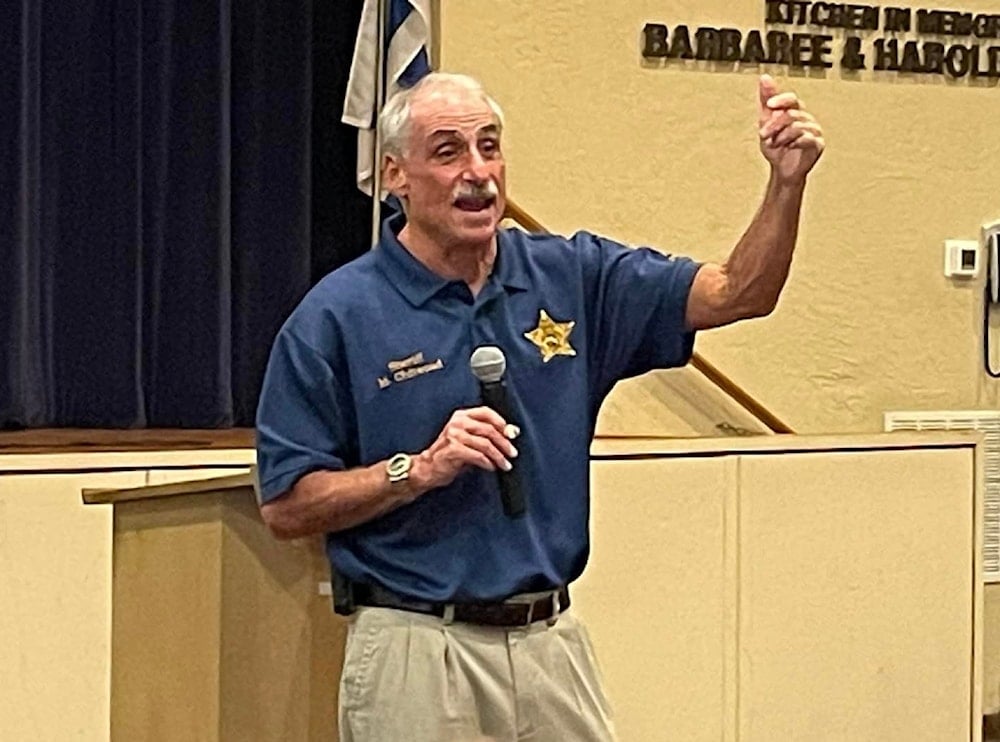Florida sheriff rebuked for posting mugshot of child over fake threats
Under Florida law, juvenile records can be made public when the individual is charged with a felony in contrast to many other jurisdictions.
-

Volusia County Sheriff Mike Chitwood (Chitwood's Facebook account)
A Florida sheriff has publicly released the mugshot of an 11-year-old child, alongside images of two other minors accused of making threats to carry out attacks, in response to a series of false school shooting threats.
Volusia County Sheriff Mike Chitwood posted the photo of the 11-year-old on social media following the boy’s arrest.
"Every time we make an arrest," Sheriff Chitwood said during a press conference last week, "your kid’s photo is going to be put out there... so that everybody can see what your kid’s up to."
His approach has sparked a heated debate. While some have criticized him as a "vigilante", others have defended his actions as a necessary deterrent to prevent future incidents.
According to Sheriff Chitwood, the 11-year-old was apprehended after he allegedly threatened a school shooting and compiled a written list of intended targets.
The child reportedly claimed the threat was a joke. Despite this, he was charged with the felony offense of making a written threat of a mass shooting.
The sheriff noted in his social media post that police had recovered several items, including airsoft rifles, pistols, and fake ammunition.
Under Florida law, juvenile records can be made public when the individual is charged with a felony in contrast to many other jurisdictions that prioritize the anonymity of minors.
In a separate incident on Wednesday, two additional minors, aged 16 and 17, were also arrested and charged with a felony for allegedly making a similar school shooting threat via the Snapchat application. Both claimed their actions were meant as a joke, according to the sheriff.
Chitwood posted a video of the teenagers being escorted from a police vehicle in handcuffs before being processed at a jail.
The sheriff's decision to share their images and videos online has ignited an ongoing debate, with some arguing that his actions serve as a deterrent to potential offense.
"Glad you are bringing these kids into custody and showing them this is not funny, they need to be disciplined," a Facebook user commented on one of the sheriff's posts.
However, others have raised concerns about the potential long-term consequences for the minors involved.
Daniel Mears, a criminology professor at Florida State University who specializes in school shootings, emphasized to the Associated Press that juvenile records are kept confidential for a reason.
"The idea was that kids would have a second shot in life," he explained while pointing out that threats of this nature are often treated differently.
On his part, Sheriff Chitwood expressed uncertainty about the effectiveness of public shaming but maintained that "something has to be done."
"Kids need to realise that what they post and send on social media is not private," he wrote online. "It will get reported to us."
Read more: Georgia school mass shooting kills 4, injures 9; suspect in custody

 3 Min Read
3 Min Read










